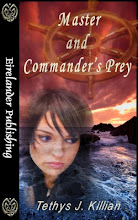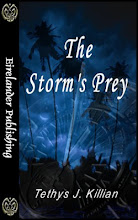Last week, Lady Aasiyah and I went over two methods for creating a story. One was basic formula and the other was p...p...plotting. Notice, I stutter when I say that word. Not because I have any problem with plotting, but more because as most writers who have met me know, I expect them to know what their plot is.
Many of them start into this rambling explanation of the story. Then they get the good old wallop from me – what is your plot? Tell me, in one sentence, what's the plot. I normally get asked – you mean my tagline?
No, what is your plot.
P...P...Plot?
As an editor, I find a plotless story a big disappointment. I also understand that most authors have never been taught that a strong plot can rescue a story.
There are seven basic plots.
1.Man vs. Man
2.Man vs. Nature
3.Man vs. Situation
4.Man vs. Himself
5.Man vs. Destiny
6.Man vs. God
7.Man vs. Machine
There are twenty Master Plots.
01. Quest
02. Adventure
03. Pursuit
04. Rescue
05. Escape
06. Revenge
07. The Riddle
08. Rivalry
09. Underdog
10. Temptation
11. Metamorphosis
12. Transformation
13. Maturation
14. Love
15. Forbidden Love
16. Sacrifice
17. Discovery
18. Wretched Existence
19. Ascension
20. Descension
It's easiest to explain a plot as it is the path your story follows. If the plot makes no sense, then the story won't make sense either. If you take your building blocks or your plot points and follow the map of a specific plot, you aren't likely to lose the logic of the story.
An example is -
You are writing a Quest. Tolkien is the King of the Quest, and his formula is followed in at least a basic form to this day.
One character (the martyr) starts the quest. He/she is given a mission which involves him starting at one place and fulfilling a mission in another. Quests are rarely one character stories. He'll start with partners who are as invested in fulfilling his mission or meet them along the way.
From place to place, the martyr grows. The readers sympathize with him because he's always placed in incredible situations. Remember, he must mature, as will the ensemble in some way, as the story progresses.
He goes through the quest until he reaches his destination – end of story.
Makes sense, right?
The biggest thing to realize when you have a story that comes across as nonsensical is to know your plot. Tailor your road map to follow it in a logical progression.
Do you think the plot is that important? Or is it just a waste of mental energy to think on this? If someone gave you the opportunity to learn more about plots, would you be interested or shrug?
Can't wait to hear your answers.
Until next week, cheers and happy writing,
T.J.
www.tethysjkillian.com
Now Available - Torrid Teasers #57 from Whiskey Creek Press Torrid
Coming Soon - Master and Commander's Prey from Eirelander Publishing
Subscribe to:
Post Comments (Atom)





.jpg)
.jpg)






3 comments:
I have the book 20 Master Plots. I've even read it. Doesn't mean it stuck. LOL *grin*
It's not a waste of time, because it is a road map and you are less inclined to go awry on your route when you have a plan.
I learnt most of what I know through discussions on plot.
Another good one, T.J.
Hugs
Z(Aasiyah/Nolwynn)
Great post, T.J.
I definitely think plot is important, but it doesn't mean I can explain my plot in one sentence.
I have an idea in my head that grows and grows. This becomes a plot as I work along writing the story. I have a hard time doing it any other way. lol
Hugs,
Sandy
Post a Comment